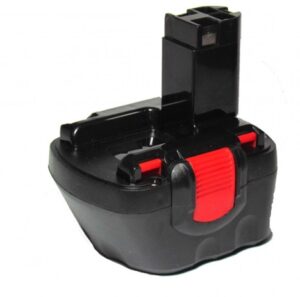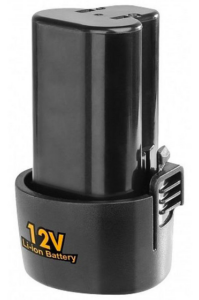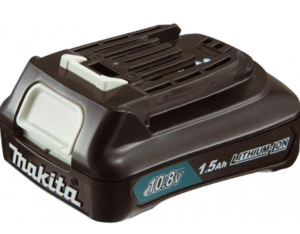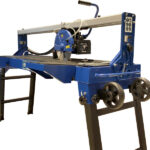Battery for a screwdriver: service life, capacity and interchangeability
The battery for a screwdriver is an integral element, the quality of which determines the duration of operation of the device without recharging. When choosing, take into account the type of battery, capacity, power and other characteristics. Basic purchasing recommendations and professional advice are described in detail in this material.
The content of the article
3 types of batteries
There are 3 types of batteries for screwdrivers, depending on their composition:
- Based on nickel and cadmium (Ni-Cd).
- Lithium-ion (designated Li-Ion).
- Based on nickel and metal hydrides (NiM-H).
Ni-Cd
The battery for the first type of screwdriver runs on nickel and cadmium. Historically, they appeared first. Today you can find many similar models, and they are mainly used for domestic purposes.
A cadmium-nickel based screwdriver battery has several advantages:
- a fairly large number of recharging cycles – about 1000;
- long service life, sometimes reaching 10 or even 20 years;
- works even at low temperatures;
- Can also be stored in a completely discharged state.

But if you consider which batteries are better for a screwdriver, you need to describe the disadvantages:
- “memory effect” - if you regularly charge until completely discharged, then a certain charge level will be perceived as zero, while in fact the device will still have a reserve;
- risk of self-discharge;
- cadmium is a harmful element that can harm the environment.
Li-Ion
These are modern devices that began to be mass-produced in 1991. They have quite a lot of advantages:
- light weight;
- no “memory effect”;
- can be charged from any charge level;
- durability.
Such devices allow for interchangeability of batteries for screwdrivers. But it is still better to use lithium-ion devices, since of those considered only they do not have a “memory effect”.
But it should be noted that they also have disadvantages:
- do not work well at sub-zero temperatures;
- a deep discharge is possible, which is why the battery for the screwdriver subsequently does not charge well;
- it needs to be plugged in periodically - you shouldn’t store it for a long time without any charge;
- are more expensive than cadmium ones.
Li-MH
These devices went into production in 2005. The advantages of this battery element for a screwdriver are:
- capacity is 20% greater than that of nickel-cadmium (other things being equal);
- works great at low temperatures;
- environmental safety (important during disposal);
- no “memory effect” (you can charge a partially discharged battery).
If we talk about the disadvantages, among them we can highlight the following:
- service life is short, since the number of charging cycles is less than 1000;
- tendency to self-discharge (even higher than that of nickel-cadmium).
Specifications
To choose the right battery, you need to understand the basic technical characteristics, for example: the battery voltage of the screwdriver, what is the difference between different types of devices, and others. The main recommendations are described below.
Capacity
One of the simple and obvious criteria by which you can judge how long the device will work autonomously, that is, without the need to recharge. It is quite clear that the larger the value, the more time you can work.
The characteristic is measured in ampere-hours, designation: A*h. If the capacity is conventionally 1 unit, this means that the screwdriver can be used for 1 hour. Although in reality the figures are much higher. As a rule, it is about 1000-2000 Ah and even more.
Different analogue batteries for screwdrivers have different characteristics. To make the right choice, it is enough to consider 2 rules:
- If the device will be used only at home, a capacity of 2 A*h will suffice.
- If the tool is needed for professional use, the characteristic should be about 2500-5500 Ah.
Voltage
Another important indicator that helps to understand which type of battery is best for a screwdriver. The larger the value, the better the battery performance:
- In the range of 3-6 V - such devices are only suitable for working with small diameter screws within 5 mm.
- 10-14 V - used for working with medium-diameter fasteners, as well as for drilling small holes. Moreover, 12 V is considered optimal, because it is the best value for money.
- 15-36V are powerful tools that can be used on hardwood and even metal parts. They are used for drilling large holes, screwing and unscrewing large diameter screws.

Advice
In cases where screwdriver battery capacity is the same for 2 models, preference should be given to the device with a higher voltage.
Life time
When choosing, it is important to understand what the battery capacity of a screwdriver affects. The higher the indicator, the more time you can work autonomously, including at low temperatures. No less important is the service life of the screwdriver.
Each manufacturer claims a warranty of at least 12 months (often up to 24 months). In practice, a high-quality device, subject to basic operating rules (including temperature conditions and recharging), can easily work for 8-10 years. There is also a connection with the type of device. For example, the service life of lithium-ion screwdriver batteries is noticeably longer compared to cadmium ones.
Brand
If we talk about which battery to choose a screwdriver with, you should also take into account the manufacturer’s brand. Today on the market you can find models from different companies, the most popular, judging by the reviews, are the following:
- Metabo;
- Makita;
- Ryobi;
- Bosch;
- Patriot.

You can buy battery cells for screwdrivers and other companies. But if they are little known, there is a high probability of encountering a low-quality product. Therefore, in some cases it is advisable to overpay a little rather than take another risk. Thus, it is better to purchase a battery for a screwdriver that corresponds to the optimal price-quality ratio. Before purchasing, it is useful to study reviews on different sites.





